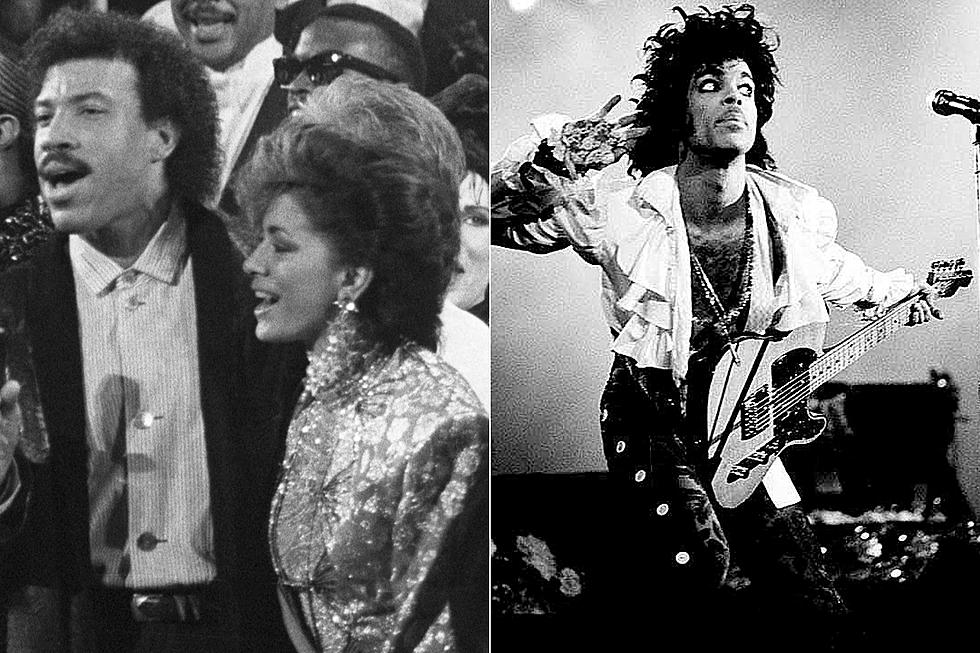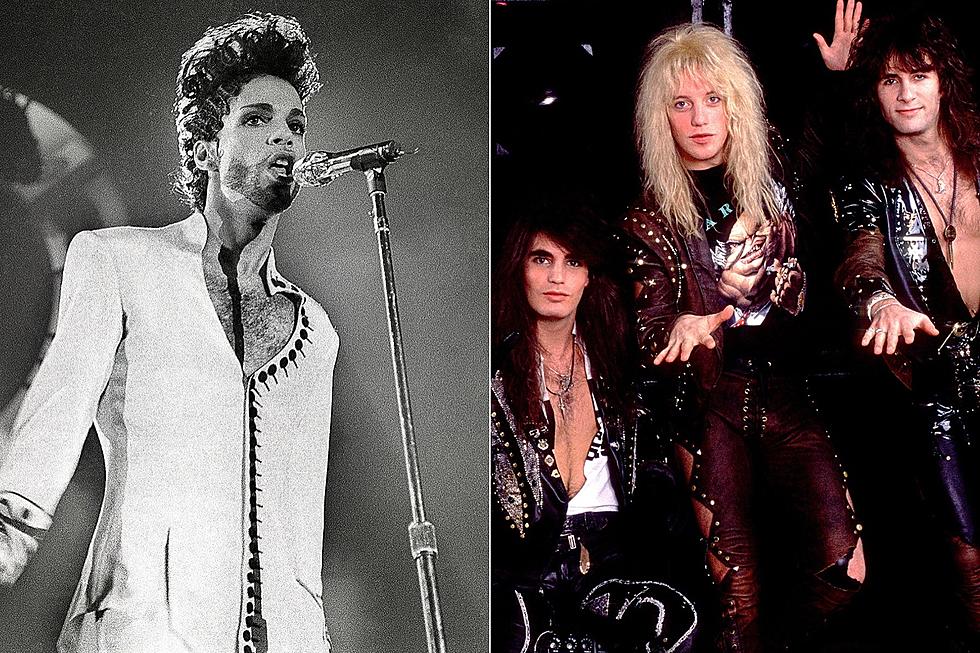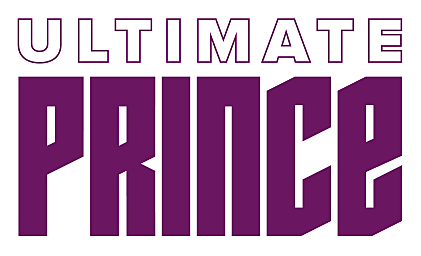
When Prince Broke Up the Revolution Over Dinner
Drummer Bobby Z remembers Prince describing the Revolution as "Mount Rushmore." Pianist Lisa Coleman said they "worked with him more than anyone else," memorably describing the band "Prince's embellishers. We embellished his musical vision."
Their short but strikingly productive tenure coincided with his meteoric rise to fame. Prince scored his first three No. 1 songs, his initial string of major awards, and his first two chart-topping albums with the Revolution. He'd have other backing groups, most notably the New Power Generation. But no one worked more closely with Prince, sharing a wide-open creative space while helping to redirect his career from nervy funk to a cool amalgamation that stirred in rock, pop, psychedelia and classical music.
"If you think about it, he had a lot of bands, or a lot of musicians he played with, but he only had one real band," Revolution bassist Brownmark told the Morning Call in 2017. "NPG wasn't a band – it was a concept. NPG was never a band. NPG was the New Power Generation – it was this new movement that he was doing. It wasn't a band; they were hired musicians. The Revolution was his band."
The end, however, arrived in a surprisingly ordinary setting. Prince broke the news to Coleman and Wendy Melvoin, his closest confidants in the Revolution, over dinner on Oct. 7, 1986, according to Jason Draper's Prince: Chaos, Disorder and Revolution. Later, he called Bobby Z and fired him, too. Keyboardist Matt Fink elected to stay but Brownmark quit, apparently in solidarity with the others. Prince's label confirmed that the Revolution were no more 10 days later, Draper says.
"Being in a band with Prince," Coleman told the Los Angeles Times in 1987, "was like holding onto the tail of a comet. It was great until it flamed out."
Their story began quite offhandedly. The band evolved out of Prince's earliest touring groups, which included future Revolution members Dez Dickerson, Matt Fink and Bobby Z. Fink went the furthest back, having co-written the title track from 1980's Dirty Mind. Coleman then replaced Gayle Chapman, and Brownmark took over for Andre Cymone, as the Revolution earned their first album-cover co-credit on 1999.
Watch Prince and the Revolution Perform 'Little Red Corvette'
Their best-known lineup was completed when Melvoin replaced Dickerson, just before Prince's meteoric rise to fame with the Purple Rain movie and album. Her arrival – like Coleman, Melvoin joined when she was just 19 – completed Prince's vision of a multi-gender Fleetwood Mac-style band.
"It's like when you'd hear the Beatles talking about when they found Ringo [Starr]," Bobby Z told Billboard in 2016. "You just knew that was the future, and Purple Rain is the testament to that."
The so-called movie band's first show, held on Aug. 3, 1983 at Minneapolis' First Avenue, produced three songs – "I Would Die 4 U," "Baby I'm a Star" and the title track – that found a home on the Purple Rain projects. The Revolution also earned their first writing credits on "Computer Blue," as Prince claimed three Grammys and an Oscar.
They were just getting started. Five of the nine tracks on 1985's Around the World in a Day were co-composed by members of the Revolution. Wendy and Lisa helped write two songs on 1986's Parade. Melvoin sang lead on "I Wonder U," while the group made credited contributions to several treasured b-sides, including "17 Days."
The Revolution may have even shaped Prince's sartorial choices. "I'd like to say hopefully that I influenced him with the color purple at one point," Fink told Minnesota's Sun Sailor in 2016, "because I was wearing purple around him early on – and he liked that, you know, so I think he might have adopted some of that from me."
The Revolution brought a smart eccentricity to the work, connecting on a deep level with their individualist boss. "After we broke up, he had guys that were, like, notating their parts," Melvoin told Rolling Stone in 2017. "We're just not that. We're scrappy. We were a band. Bobby says it all the time: 'We were the last band Prince was ever in.'"
Watch Prince and the Revolution Perform 'When Doves Cry'
Prince sold a whopping 20 million albums in the U.S. over this four-year period. Still, by the time the Revolution wrapped the Parade tour on Sept. 9, 1986, in Japan, something had changed. "If we had been looking, there were probably signs," Melvoin told the Times, during a promotional tour for the debut album Wendy and Lisa. "But maybe the signs were there, and we just didn't want to see them."
"Mountains," from Parade, marked the debut of next-era Prince collaborators Miko Weaver and Matthew Blistan. The Revolution's final show with Prince ended in a destructive tantrum, as Prince smashed his instrument. Plans for a follow-up album called Dream Factory abruptly fell apart. Then Prince's next project – the album that became 1987's Sign 'O' the Times – began to evolve into more of a solo effort.
"He had been working more on his own than usual," Coleman told the Los Angeles Times. "We weren't with him in the studio as much." Then came an invite to dinner.
Ultimately, many of the songs Prince had been constructing with the Revolution were either cut entirely from Sign 'O' the Times, or re-worked to the point where their contributions were erased. "We listened to it like, 'Oh wow – we are gone,'" added Coleman, who'd been in Prince's band since nailing an impromptu audition in 1979. "It was like a breakup and seeing your boyfriend with another girl."
Prince promptly replaced Bobby Z with Sheila E. Fink continued through Prince's Graffiti Bridge period. But he couldn't find a way to retain Brownmark, who'd made his debut during the infamous 1981 concert where Prince was booed off the stage while opening for the Rolling Stones at the Los Angeles Memorial Coliseum.
"I was supposed to be in the NPG; he talked to me about that group," Brownmark told Billboard. "But it was never going to be the same as the Revolution, and I kindly declined. Once you're in a group like the Revolution, it’s very hard to go and start playing with someone else. The other bands that he played with – I mean, he loved everybody he played with, but we were family."
Watch Prince and the Revolution Perform 'Mountains'
Coleman and Melvoin discussed their shared legacy in a tribute to Prince called "Song About" from their debut. "It's a sad song because it's sad thinking about what happened, and realizing all that is gone for good," Melvoin told the Times. "We wrote that song to let him know we're never going to let go of the memories."
The members of the Revolution scattered, focusing on solo work and production projects. Coleman and Melvoin won an Emmy in 2010 for their contributions to Showtime's Nurse Jackie. But other than individual one-off collaborations, as when Wendy and Lisa sat in on 2007's Planet Earth, the group never reunited with Prince.
"But we always loved each other – and he would call us, you know, in different configurations to help him in different projects," Brownmark told the Morning Call. "You know, 'Mark, come play bass with me tomorrow.' Or 'Wendy, come play the guitar on this thing I'm doing.'"
The Revolution eventually got back together in 2012, in celebration of Bobby Z's recovery from a near-fatal heart attack, but they were forced to place a guitar on stage where the still-restless Prince would have stood.
"It's like we'd talk about doing a reunion, and then he'd say, 'You know, why does everybody want to talk about high school?' Like that's the best time of your life, you know?" Coleman told the Morning Call, laughing. "And when you're an artist, you can't think that way. You can't have the best part of your life be behind you. It always has to – you have to have a carrot in front of you."
After Prince's sudden death, they reunited once more. But the Revolution couldn't bring themselves to replace Prince's vocal on "Purple Rain" during the resulting tour. Instead, it became an emotional sing-along with his heartbroken fans.
Prince’s Bandmates: Where Are They Now?
More From Ultimate Prince









